Chhayanaut at 60: In remembrance

After my SSC exams, way back in time, I wanted to explore new horizons. I had always wanted to travel and visit interesting places in the region. But my mother had other ideas: somehow, she skillfully planted in my mind that I would learn to play the sitar. A visit to a pulsating and colourful Chhayanaut made it easy for me to agree with her, as I was drawn to the serene sounds of the Bhairavi scale.
Under the tutelage of Ustadji (Khurshid Khan), it was a journey I would not trade for much else. Our relationship grew into a deep guru-shishyaparampara that endured for decades until his demise. In simple and steady steps, he taught me many beautiful combinations of the sargam to develop my early skills. I remember the collective practice of the sargam at the beginning of each class, which often drew a crowd of learners from other specialities.
We learned about the various raga and their scales. I was amazed at how changing a single note changed the character of Bageshree to Rageshree or Malkauns to Chandrakauns with their characteristic melodies. We learnt about the 10 thaat (Bilawal, Khamaj, Bhairavi, etc) which grouped the raga with similar features. We also learnt about the taal, loy, theka, and their intricate embellishments. I vividly remember an evening when Ustadji and Aslam bhai created magic with raga and dhun. Aslam bhai then told us a fascinating story about a woman going to the riverbank to fetch water; this entire story he played on his tabla in slow, fast, and undulating patterns to depict her gait, cadenced steps, and how she scurried back home because she had stayed back a little longer to meet someone—all expressed in flamboyant rhythms!
Ustadji had great skill as a storyteller, filling us with tales of the Maihar gharana, and the indomitable and multi-talented Ustad Alauddin Khan (also a strict disciplinarian) and his array of disciples, including Ustad Ali Akbar Khan (his son), Smt Annapurna Devi (his daughter), Pandit Ravi Shankar, Ustad Bahadur Khan, and Pandit Nikhil Banerjee, among others. So dreaded was Ustad Alauddin Khan that, in one story, we learnt that some of his disciples were not prepared to perform a particular lesson. Upon hearing his footsteps, several of them clambered down the adjacent balcony to avoid chastisement or even a drubbing. As Ustadji recounted the story, he burst into a laugh because the disciples had used their dhoti to climb down from the second floor. Of course, we all rolled in laughter with him!
Among my compatriots learning the arduous art were (Aminul Haque) Badshah bhai (press secretary to Bangabandhu Sheikh Mujibur Rahman), (Sheikh) Kamal bhai (the effervescent son of the beloved Bangabandhu), Barkat bhai (who worked for an architectural firm), and others. I still remember with fondness our performance on Dhaka TV at the former DIT Building. Ustadji choreographed the programme centred on Raga Malkauns, which I can still recount in my mind clearly. It was an exquisite programme and the four of us produced beautiful music!
Chayyanaut was not just sitar lessons for me; it was a unique and iconic institution that represented a harmonious unity. The public functions, especially Pahela Baishakh, at open air venues like Ramna, were electric: there was great diversity but a oneness of spirit. As the chorus filled the sky with melody, I saw that spirit soar to the heavens. These were our nostalgic times, whether it was at the Baldha Gardens, the ghorowa events, the probhat pheri, Amar Ekushey, or other similar events.
Chayyanaut was also an ecosystem of wonderful, highly respected, and talented people with deep values and remarkable ideals. Their love for Bangladesh and its people was always in overflow mode. The camaraderie and fellow feelings at the institution created deep bonds that are strong even today. Among the inspirational figures were Sanjida apa and Waheed bhai who were the heart and soul of the institution. Being with them was like being a very part of them. Their graciousness and serenity still remain firmly embedded in my memory.
I sometimes marvel at my audacity of youth. Competing at Dhaka College in 1970, when I was barely playing a gat (bandeesh) in slow tempo and some jhala, I took first place! Then came my first public performance in 1972, deeply etched in my heart. It was the Freshers' reception at the Teacher-Student Center (TSC) of Dhaka University. I played Kirwani and even a little sawal-jawab, assisted graciously by Aslam bhai, which earned me many accolades. But what stands out about that day is the stem of rose I'd received in appreciation from a young lady from the English department: we have been together now for nearly 50 years. Playing the sitar (may have) found me a partner whom I cherish deeply.
Recounting an episode, I left for the United States in 1974. That year, Pandit Ravi Shankar performed live at MIT's Kresge Auditorium, which I attended. When I went up to him at the end of his performance and said I was from Bangladesh, I recall his warmth and grace while conversing with me for a few moments. He must have remembered The Concert for Bangladesh organised by him and George Harrison of the legendary The Beatles during Bangladesh's liberation movement. Next year, I performed at the same venue when the Bangladesh Association of Boston invited me to play there: what incredible acoustics!
Chayyanaut has given me much. Even today, to my utter surprise and joy, someone will ask, "Do you still play the sitar?" Beyond the raga lay a treasure trove of lessons: discipline, hard work, perseverance, and resilience. I also learned to appreciate my culture more deeply, to be creative, and to explore artistic expressions. The ambience of Chhayanaut taught me about compassion, understanding, and responsibility to society and nation.
I am profoundly grateful to the institution which helped me evolve both as a music lover and as a human being. May the institution continue to enrich ardent minds, touch hearts, and enlighten souls.
Dr Syed Saad Andaleeb is distinguished professor emeritus at Pennsylvania State University in the US, former vice-chancellor of Brac University, and former faculty member of IBA, Dhaka University.
Views expressed in this article are the author's own.
Follow The Daily Star Opinion on Facebook for the latest opinions, commentaries and analyses by experts and professionals. To contribute your article or letter to The Daily Star Opinion, see our guidelines for submission.

 For all latest news, follow The Daily Star's Google News channel.
For all latest news, follow The Daily Star's Google News channel. 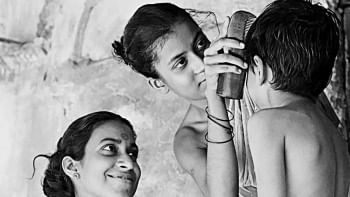
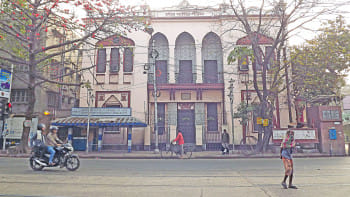
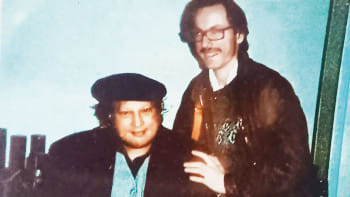


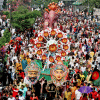
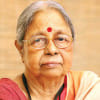
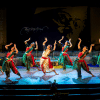
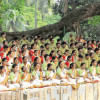


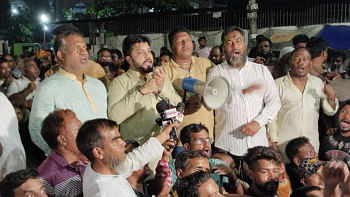
Comments